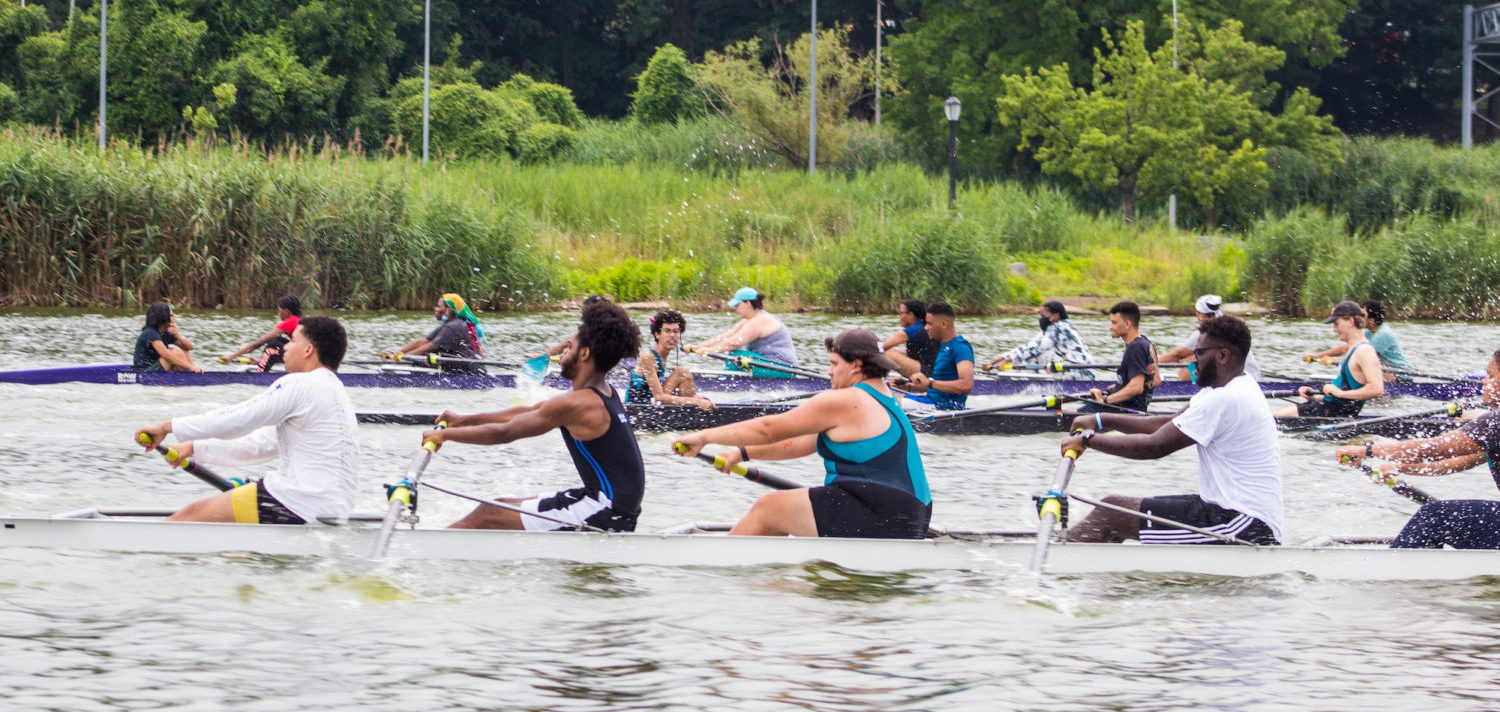by Denise Aquino, Director of Community Rowing
When I first heard the term “juvenile justice” I thought it was some sort of justice league. When I walked into Horizon Juvenile Center in 2013 (as a rowing coach, mind you), I was a few weeks into my new job and had minimal work experience with court-involved youth. I had no idea what to expect. On that cold winter day, my coworkers and I stood outside to unload our rowing machines from our van through the cargo bay. As we waited with snow starting to collect on our heads, seconds felt like an eternity and my eyes fixated on the barbed wire 20 feet above.
It was piercing to see it in person, and even more so from inside of the gate. With our four rowing machines, it somehow felt rational to think that maybe the security guard forgot to unlock the door for us. Time slowed down waiting for a door that someone else was supposed to open. Why did I take for granted what it was like to open my own door, I thought to myself. The closer I got to the courtyard where we were supposed to teach the kids, the farther I felt from reality; the more I had to remind myself of what exactly we were doing here.
That winter day in Horizon Juvenile Center I learned that teaching rowing to youth in detention centers was not so different from teaching youth anywhere else. The catch and the drive were the same all around. I learned that everyone likes to play games, and even behind bars erging (indoor rowing) can be fun. I learned that getting someone to smile is really hard to do in a detention center. I also learned the challenges that come with describing rowing to someone who is afraid of even talking about being near water. In the same way I never took for granted how to open a door for myself, I never thought to take for granted the joy, the confidence, and the positivity that rowing can bring.
Four years later, as we prepare to start the 2017 school year I reflect about that time at Horizon and how our youth justice programs can grow. Firstly, we changed the program name from “Juvenile Justice” to “Youth Justice” because I cannot think of one positive word that follows the word, juvenile. Second, we started to do more on-the-water programs, especially for youth who were awaiting foster care placement.
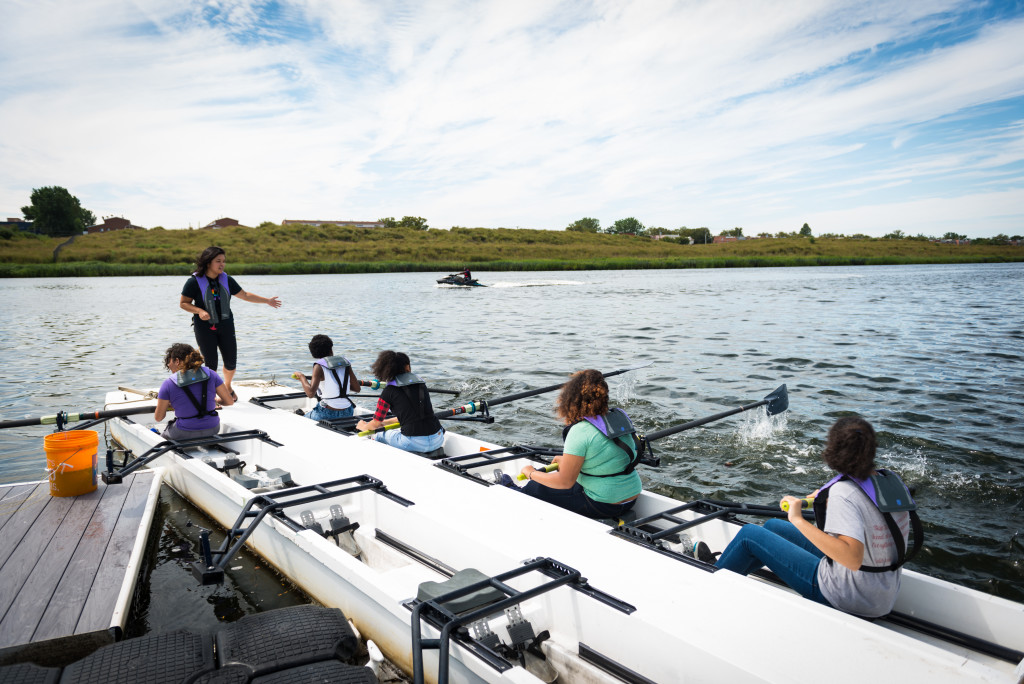
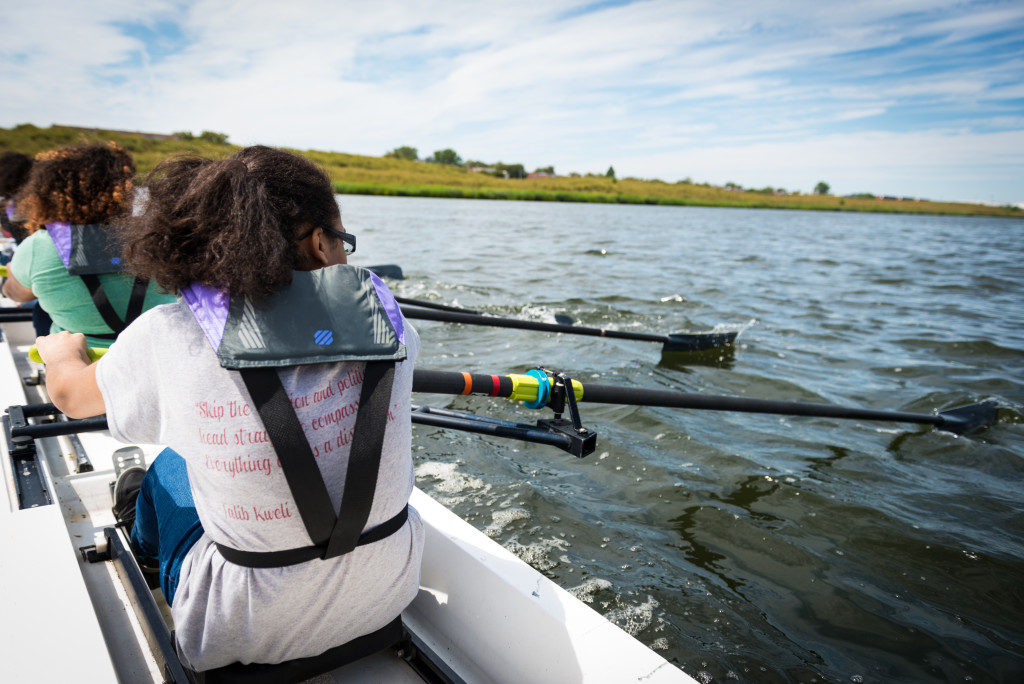
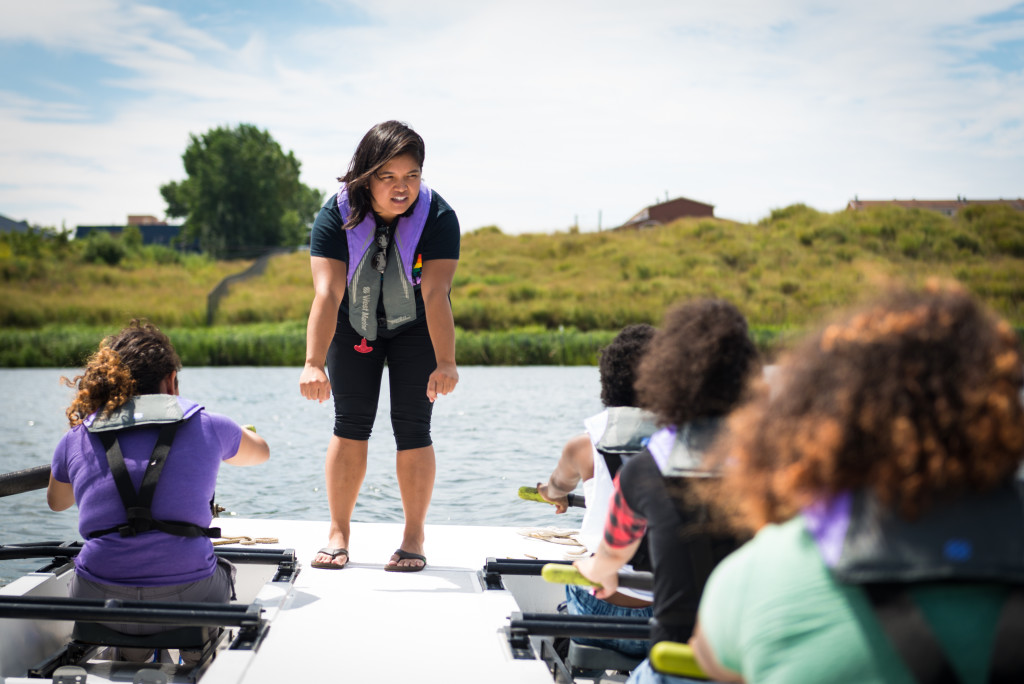
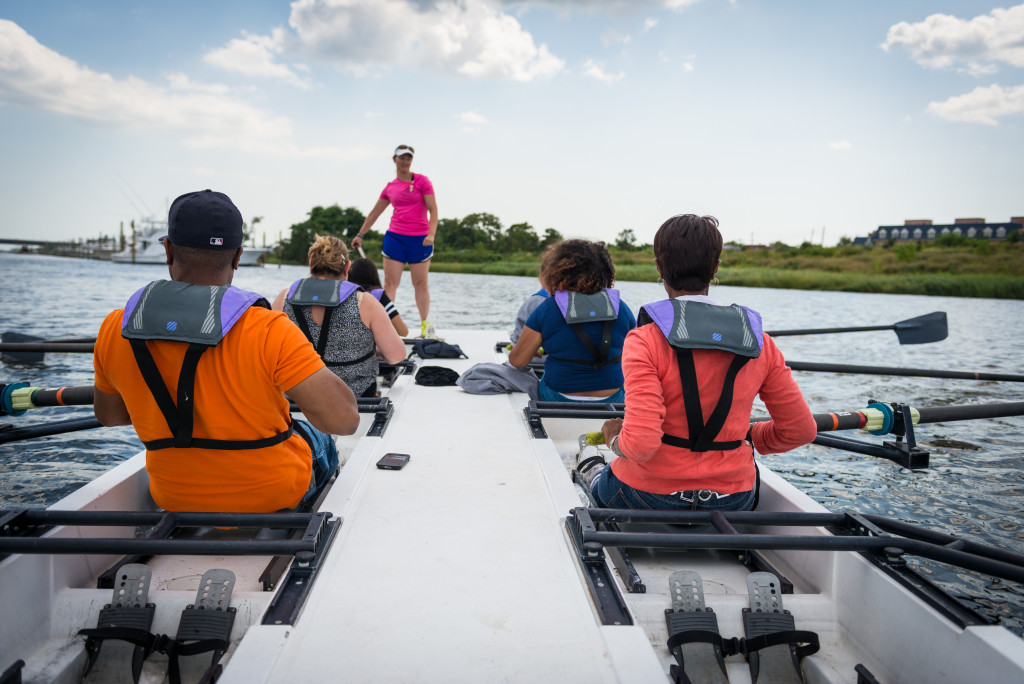
This summer, we had a 1-week program where a group of youth from the ACS Children’s Center came to our Brooklyn site and learned how to row on the water. Furthermore, we had a 6-week program with the Fortune Society, where young adults who are court-involved learn the basics of rowing in Brooklyn. And finally in Queens, we had 1-day programs for youth who were in non-secure placement (ACS) came to our site and learn how to row.
A few weeks ago, we had a handful of girls from the Children’s Center at our Brooklyn location. After the practice, they asked Alexandra, our community rowing coach, how they could keep rowing, which was music to her ears! She told them about the upcoming tryouts and urged them to show up.
With the benefits of physical activity as an alternative to the use of solitary confinement within youth detention centers as well as the overrepresentation of certain demographic populations in both foster care and detention centers, I look forward to the growth of Row New York’s Youth Justice program. We are making rowing more accessible, using rowing to help New Yorkers open their own doors, and ensuring our mission to “transform the lives of New Yorkers regardless of background or ability” continues to grow.


